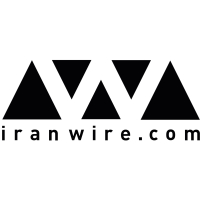Tehran is a city of underground cafés—cafés where you can sit at a bar and drink a beer, where you can take off your headscarf and manteau and order a cup of coffee with a few drops of whisky. There are cafés where you can order marijuana and eat until the high is over. None of this is legal under the laws of the Islamic Republic. Penalties can be severe if you’re caught. But like American speakeasies during prohibition in the USA, these places are oases in a desert of official prudery.
It took us months to gain the trust of underground café owners and write about some of the places where these modest dreams come true.
ADVERTISEMENT
Breakfast At Cafe-No-Headscarf
We enter an old house which has no signs and does not look like a café. Its doors open only on Fridays and only for brunch, but they are not open to the public. We made reservations two weeks ago through our connections and deposited $16 dollars so that today we could have a unique brunch in this underground establishment.
The owners live upstairs and the ground floor next to the backyard is a secluded place with simple chairs and tables for guests. Only on Fridays between 10 am and noon does it become this crowded. The café can sit about 20 people, has a cozy atmosphere, beautiful paintings and hangers for scarves and manteaux. But is it worth the price? One of patrons says that brunch without headscarves is worth even $40. “This place makes you feel good. I like the yard and the proprietors are friendly and dignified. Maybe some people pay the price to try it only once but I like to come here often.”
As we continue our exploration we discover that such a serene and cozy place is not the only kind of underground café that you can find in Tehran.
Hashish Next to Homemade Tarts
It is in western Tehran where we find the other kind of café. The house is filled with chairs and tables for patrons. Men and women are sitting together and talking, and sometimes you can spot a face you know. But getting admission was not so simple and required intermediaries.
The house is cozier and more modern than the one in which we had brunch. Headscarves and manteaux are discarded upon arrival. Grass cakes, hashish and marijuana are arranged next to homemade cakes and tarts. Prices vary from $12 to $30.
The walls are decorated with semi-nude pictures of well-known actresses from around the world and there are a few statues made of plaster or wood. Combined, they give you a sense of being in different place.
This “different place” of course has not escaped the notice of the police. Seyed, the proprietor, tells us that there is always a way to keep the police quiet. “Prices go up and down,” he says, “but up to now I have not met a policeman whose silence you cannot buy. When the usual and familiar police agents arrive, they put the money in their pockets and don’t bother the patrons. We exchange greetings and that is the end of it.”
“This place has everything that we don’t have outside,” says Saeed, a frequent customer of the underground cafe world. “Whenever I am tired I come here. Somehow it makes you feel good. Some nights they have concerts for musicians without a permit, and they also arrange shows for painters and photographers. It seems that we are in a different country in the heart of Tehran with its own laws.”
Not everybody is aware that such cafés in Tehran exist. Some spend a lot of money to travel outside the country to enjoy such minimal freedoms.
Flight To Freedom
“When I travel to Istanbul, Malaysia or some such places,” says Leila, “the first thing I do is to go to a café and drink a glass of wine. After so many years that I have travelled around, it still excites me.”
Leila is not the only one who finds joy in drinking an alcoholic beverage when travelling outside Iran. “In Tehran,” Leila adds, “you have to constantly watch your headscarf and a thousand other things even if you are drinking just a cup of coffee.”
She is of course talking about legal cafés. Many people like Leila are not aware that underground cafés like those that we visited exists, cafés without identifiable doorways or signs like “Observe Hejab” or “No Smoking”. Their numbers however are not very high.
“I love to discover underground places,” Saeed tells us. “That is why I know these cafés so well. Tell you the truth, there are not that many underground cafés which are really cafés, no more than the fingers on one hand. Most places that I have gone to have been parties not cafés.”
This article is adapted from a post on IranWire by Gandom Khatib.






